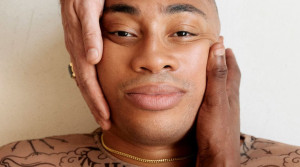Or the fact that many immigrants from Africa and beyond, don’t know they are Black until they come to Canada and are told by a white person that this is their label, the box that they belong in.
It’s pretty obvious that race is simply a social construct. So should we even be using this word when we talk about discrimination?
This is the layered topic tackled by the film Origins, directed by Ava Duvernay. The film's premise follows author Isabel Wilkerson as she writes the book Caste - The Origins of Our Discontents. The takeaway is that racism may not be an appropriate term for the atrocities experienced by race-based discrimination, and perhaps we should stop using the word entirely.
A few major questions are asked in the film: should we use the word ‘racism’ to describe all racist encounters, no matter the severity? Is racism an appropriate term, or should we be discussing caste?
What first must be understood is that racism works in tandem with caste, and is how North America segregates its lowest caste. Caste uses several pillars to determine who is the dominant and who is the subordinate. These pillars include what caste you inherit, controlling marriage, occupational hierarchy. Dehumanization, terror and cruelty are used as enforcement of control.
{https://www.youtube.com/watch?v=pAweg5PaMuw}
The film explains that caste systems, which started in India, were seen in America during the transatlantic slave trade and then emulated and brought to Germany by Nazis to exterminate the Jewish population. The same means of dehumanization and cruelty used on Black people were the blueprint that Nazis used during World War II. With these facts in mind, does it make sense to label these atrocities as racism? The film suggests that this is where it would be better to use caste systems. In both of these cases, one group of people has deemed themselves better than the other and is in turn controlling the subordinate for their profit, or to continue to be the dominant caste.
It dawned on me that perhaps the term ‘racism’ itself is incorrect. Why do we label a school child calling another the N-word as racist, and also say a lynching is racist? How could both of these instances have the same severity? In her book, Wilkerson notes that the arbitrary nature in which we have coined the term racism leads to flaws in our semantics around this behaviour.
Dr. Suraj Yengde who appears in the film, is an author on caste systems and a scholar at Harvard and Oxford. He agrees that race is not a term meant for humans, but rather to categorize species. “It was really meant [to describe] the way various species interacted with each other. Suddenly race as a phenomenon was used to categorize people, but there is only one race, which is the human race.”
Dr. Yengde describes caste as an “effective tool to underscore the various differences that human beings have created that encompasses your inheritance, your location in a society, vis a vis your position of economic quantifying abilities. Caste helps us to understand many forms of hierarchies, but also it goes much deeper than what race would have us explain now in today's context.
According to Dr. Yengde we continue to amplify race as a structural institution but caste is used to locate and answer certain questions such as background, lineage, status in society and is a quality identifier. It goes beyond colour. “It gives a refined understanding of the person living in society.”
In regards to semantics, Dr. Yengde points out that South Asia does have varying language to describe different levels or intensities of racism. Both the words ‘race’ and ‘caste’ etymologically originate around the same time in Ibera. Caste, however, helps us make sense of our being. “If you are from Africa or Latin America or other South Asian societies or any other societies, anywhere in the world, there is a set hierarchy. Same goes with America and Canada. There are different shades of whiteness that develop. By applying caste, you don't brush it as a monolithic identity for a person who, just because they look like something else, you know, looks are very deceiving. It's a very improper way to manifest ourselves." Again asking more questions about the person's identity rather than attributing value to their skin tone is a more holistic and appropriate way to understand a person and how they self-identify.
“When people get categorized into colour, and it mostly and only happens in the Western world, they do it unwillingly to become categorized.” Dr. Yengde adds the example that many Nigerians may not identify as Black because they are not categorized as such until coming to North America, or someone recently saying to him that Gandhi was a ‘brown man’ though he may not have personally adhered to his brown identity.
“The concept of race becomes prominent for two reasons. First, it's western and second, it has to do with colonization over the past 200 years. That's why we deal with it now.” Dr. Yengde adds that one specific confounding situation of racism versus caste depicted in the movie Origins deals with the fact that Trayvon Martin, a Black teen, was killed by a Hispanic Man. “[this example] has to do with the idea of caste. What does caste mean? Caste means having absolute control of the resources, which you do not want to part with or share. You want to have an absolute measurement of whatever out there belongs to you. That's the kind of language we need to deploy to understand this.”
Dr. Yengde’s colleague Dr. Milind Awad points out that racial subordination simply derives from caste and believes to truly understand caste you need to understand its etymological meaning. Dr. Awad shares that caste originates from the Latin word Castus meaning pure. He theorizes that caste shares this etymology with the Varna system which deals with purity and impurity and is enforced through an idea of colour, “which is close to racial segregation. If you see the etymological correspondence of these categories which is very similar there is comparison between caste and race.”
Furthermore, Dr. Awad notes that movements to abolish slavery echo movements to abolish caste systems in India. “Constitutionally it is banned, but still the social function of caste is very much prevalent. If you see the matrimonial columns in Indian newspapers, you will see that the description of Bride and grooms are based on the definition or the origin of caste, sub caste, varnas, which show that caste is still prevalent. So institutions such as marriage carry forward the principle of caste only which is prevalent in the daily newspaper advertisement.”
He adds that the parallels in these communities are prevalent when you look at who is engaged in inferior labour, who is not paid equally, who is in unsafe housing, who is in forceful poverty or even excommunicated. “The similarities are in continuation of the oppressive system, which can be called caste system or racial segregation.”
Journalist Meera Estrada feels that using ‘caste’ to describe oppression as opposed to ‘racism’ is more accurate because it represents a bigger issue at hand. “When you look especially at the pillars of superiority versus inferiority, endogamy, the mixing of marriage, the dehumanization - those are all things that we see them happening across the board, whether you're looking at Nazi Germany, whether we're looking at Palestine right now, whether we're looking within India. The thesis that Isabel had was that this is not just a black and white issue. Caste is the appropriate word because none of us are in silos.”
{https://www.instagram.com/p/C3oOh-3PqoF/?hl=en&img_index=1}
But Teneile Warren, Equity and Inclusion Officer at the Waterloo Region District School Board, has a different view. “Caste discrimination isn’t racism. I caution against the use of the term caste in place of racism. In Western society, we are socialized to understand caste as a hierarchy of discrimination in South Asian countries and societies. We are socialised to the term as being of, and from racialised bodies. That’s a slippery slope towards excusing white supremacy and colonialism, which also has its influences on the caste system in South Asian societies.”
Warren says they are in no way seeking to discredit Isabel Wilkerson’s work, but language matters. “It’s important work in understanding American society. There is a tendency for white people to talk around direct terminology like white supremacy and racism. Caste could become one of those terms. This could actually work against individuals, primarily South Asians impacted by caste-based discrimination,” says Warren.
Dr. Yengde feels that the way we categorize ourselves now and separate ourselves should not be an ideal we keep in mind as we look toward the future. “We should discard the many meanings that are giving us artificial recognition for ourselves. When we think about ourselves through ‘what is my story’, and then that's where you start asking questions such as ‘what's my background’ and ‘what I've been doing’, we get a better understanding of self. The new theory is that by educating people about certain colours and using colour-based recognition we inadvertently advantage the people who want to benefit from the colour regime and within the colour regime who benefit from the idea of whiteness.”
Dr. Yengde shares an example of a friend who is a third-generation Canadian. He is of Polish descent but eventually he is no longer seen as Polish and becomes ‘white’. “Because whiteness has benefits and gives you a premium, you hold on to it. There's nothing wrong with that person, because if it was benefiting me, I would hold on to it too. This idea of resources and caste gives us that language. You are trying to derive the resources based on what category you belong in, what's your background and how you share your resources with certain groups. Caste is basically a refined inquiry of your existence in a society so that you can make sense of your own relation with other people and society.” This same idea around caste is shared in Wilkerson’s novel. Many European immigrants we now call ‘white’ only adopted that term to try to assimilate to the higher caste. Many Black immigrants who come to North America now do not know they are ‘Black’ until someone tells them so. Until that moment they are Nigerian, Senegalese, or perhaps Congolese.
Naturally, western society has not fully understood this concept of caste yet, though Dr. Yengde feels that the more people who understand caste the more our current systems would change. “I think after Origins there’s going to be some work that we have to do, but it will certainly pave a path for many instances of similar types of incidents that people have, and they'll start questioning. We collect our individual experience, which is very unique to us and then we try to place that unique experience into the larger context, which may be correct, which may be not.”

 By
By 








